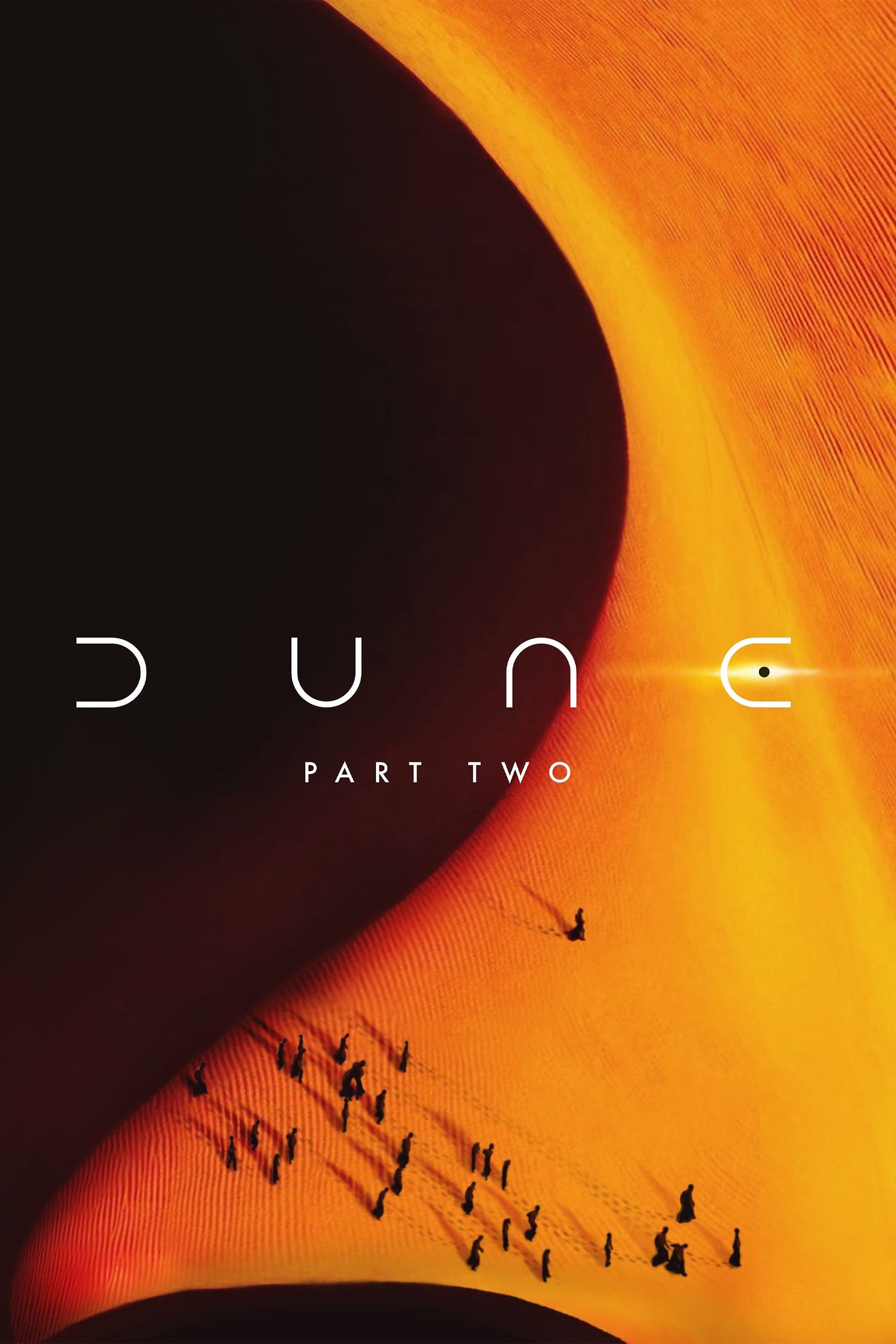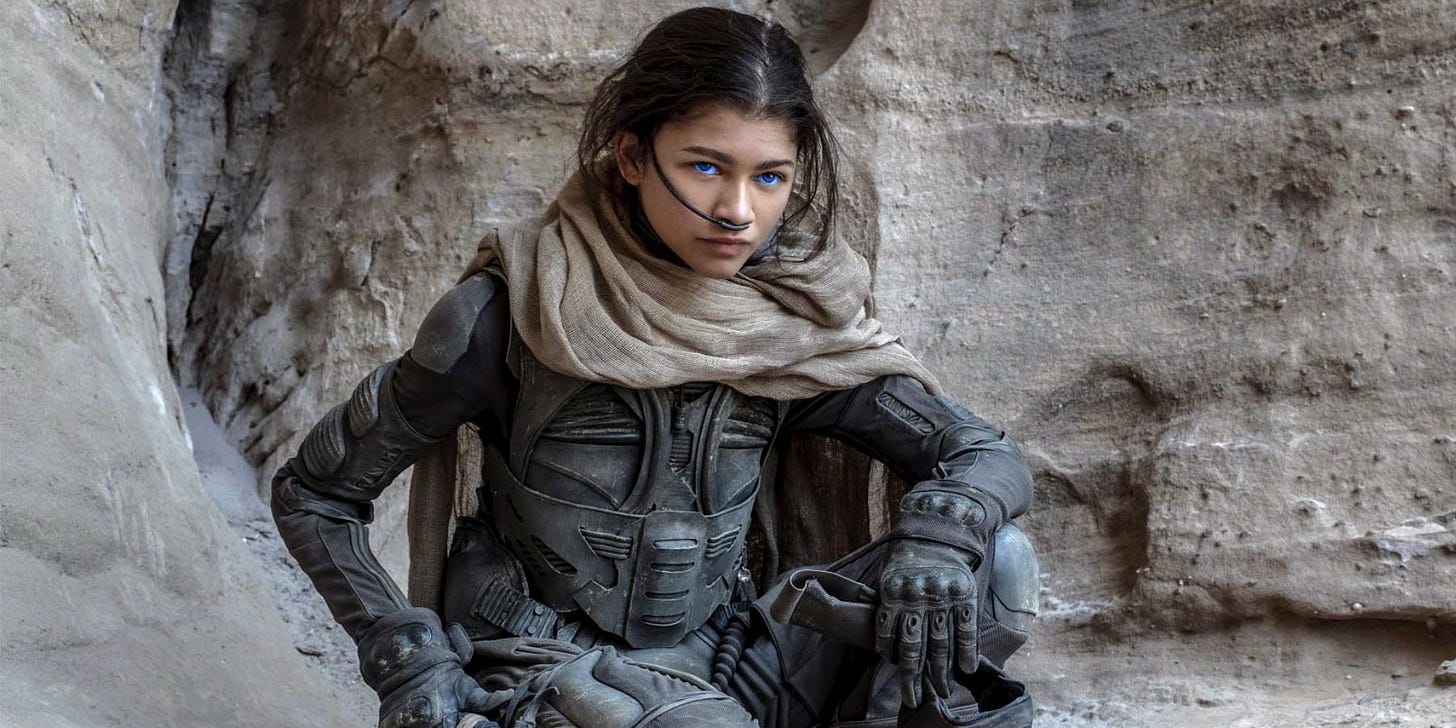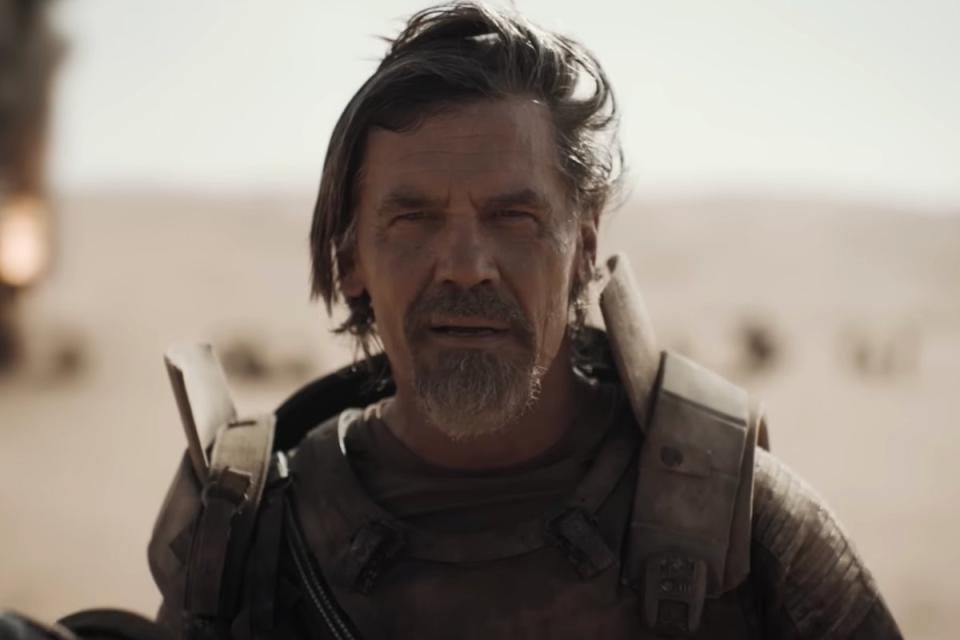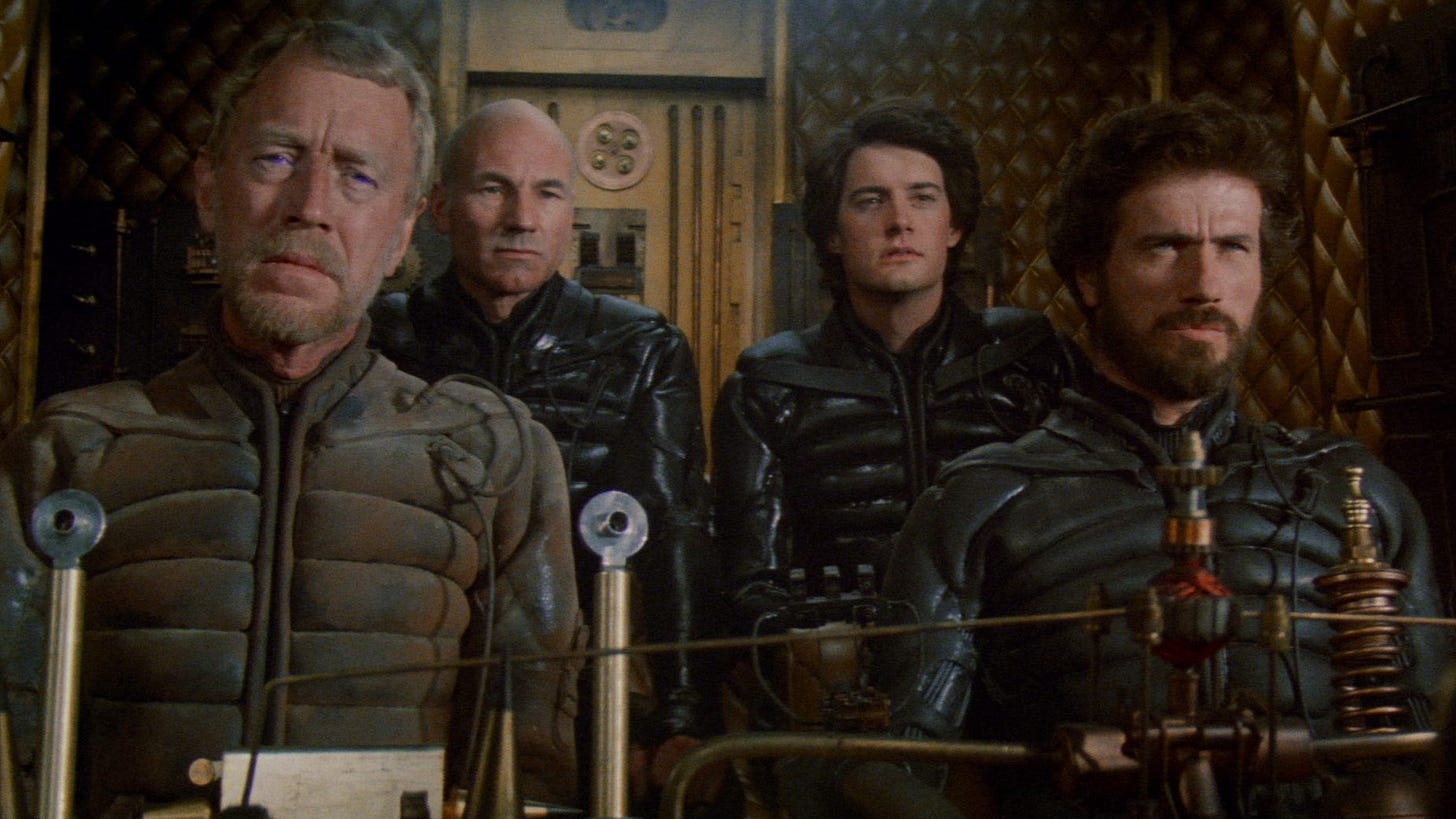Editor’s Note: While We here at Upstream Reviews prefer to praise the things we like rather than critique what we hate … Richard felt strongly about this one.
~Declan Finn
When it was announced a few years ago that a full-length feature film adaptation of Frank Herbert’s classic, Dune, was coming I was thrilled.
I’m still a fan of the 1984 original adaptation – although David Lynch is a little too far out there as a director for my taste. But the cast was nearly perfect – aside from Sting – and the soundtrack was solid. Even the sets and effects were good for its day.
The 2000 SYFY mini-series was not quite as solid in its cast, and they squeezed in Dune Messiah for some reason – but it remains watchable.
But I have always said I would have loved to have the 1984 cast with a bigger budget and better CGI to work with. It seemed that the 2021 release of Dune would be as close as we’d ever get. With Kevin J. Anderson and Brian Herbert – the son of Frank Hebert – on board I felt certain that the movie would stick as close as possible to the original novel.
With Denis Villeneuve directing, we would get a director with actual big screen sci-fi film experience – as opposed to TV directors like J.J. Abrams and Joss Whedon, who butchered three sci-fi film franchises (Star Strek, Star Wars, and DC Comics) into oblivion. Villeneuve’s Blade Runner 2049 was a solid film, with very few nits to pick. And the man can put together a visually stunning film.
Casting Timothée Chalamet as Paul Atredies was of concern. Although finding a younger actor with solid chops is a big ask these days. Rebecca Ferguson as the Lady Jessica – given she’s barely a dozen years older than Chalamet – was an odd choice but given the Bene Gesserit ways, could be pulled off. Zendaya as Chani was a small red flag – only because I don’t see where people think she’s that great of an actress. But a good director can pull great performances out of sub-par actors so it was a small issue.
My two biggest issues with Dune came with Chalamet’s portrayal of Paul as a spoiled brat – something Paul of the novels was not. And then there came the gender-swapping of Liet Kynes. It flew directly in the face of the universe Herbert created back in 1965.
Still, overall, the movie did stay pretty close to the book, albeit the Emperor’s absence from the first film was perplexing. And why the Harkonnen were changed from gingers living on a world trashed by its occupants to bald creatures with the complexions of vampires, living on a world under a black sun (I’m not sure such a star could exist in reality), escapes me.
Despite this, I went into watching Dune Part 2 this week for the first time with some hope.
My hope was quickly dashed.
Did We Read The Same Book?
When they pounded out the script for the sequel, did anyone in the room bother to read the book? Or did they just skim the Cliff Notes?
Because there was a whole lot of flat out dead wrong about the sequel.
I had hoped, after the death of his father, they would have Paul grow the hell up as he realized the fate of his House – as well as the entire universe – had just landed on his head. But nope, he’s still the over-emotional, spoiled brat. No growth at all.
The Paul Atredies of Hebert’s novel was a leader of men. The Paul of the recent films would fit in perfectly with the spoiled brats occupying Columbia University.
Stilgar has gone from a leader of his people to a crazed religious zealot. The Chani of Herbert’s book was a zealous defender of Paul. She even kills off anyone who dares to try to oppose him. The Chani in this film? She should have had her water returned to the tribe about 30 minutes in.
Villeneuve compressed the timeline of the book, instead of Paul’s sister, Alia, being born when Jessica becomes a Reverend Mother, she stays in the womb and chats with both her mother and brother.
He also leaves out that Paul and Chani have a son, named Leto, who is killed when the Harkonnen attack the sietch where she and the boy are staying while Paul wages war on the Harkonnen. Alia is captured in that attack putting her in position to kill her grandfather, Baron Harkonnen, during the final battle.
Chani becoming something of a bitter harpy in the film, also denies us Jessica’s closing line in the novel. When Paul agrees to take the Princess Irulan as wife to secure his place on the throne, in the film, Chani throws a tantrum and storms out.
In the novel, she is aware of the reason why Paul must marry Irulan, but also knows Irulan will never share Paul’s bed. That place is reserved only for Chani.
Or, as Jessica says in the novel:
“Think on it, Chani: that princess will have the name, yet she’ll live as less than a concubine – never to know a moment of tenderness from the man to whom she’s bound. While we, Chani, we who carry the name of concubine – history will call us wives.”
That moment, along with so many others, was denied us because someone thought they could tell Herbert’s story better than he did. And I hate that most about Hollywood’s adaptations. Have some respect for the source material.
The other wasted opportunity was the casting of Christopher Walken. He was so ill-used in this film its almost criminal. Compared to Jose Ferrer’s Emperor Shaddam IV in the 1984 film, Walken’s Emperor is a frail shade of the character. It was a disservice to Walken to use him so poorly.
And the film ends with another direct contradiction of the novel, and the set up for the sequels.
In this film, the Great Houses are summoned by the Baron Harkonnen in a last ditch effort to save his neck and unseat the Emperor.
In the book, it is the Spacing Guild in orbit over Arrakis and when Paul threatens to destroy all of the spice fields, the Guild backs down. Without the Spice, they are out of business and space flight ends.
In the film, the Great House are overhead and literally tell Paul to pound sand – something they would not do as they would lose the Spice. In the film, their refusal launches the “Holy War” that Paul fears.
This is not the sequence of events in the six novels written by Herbert.
Some Good Among The Catastrophe
There were some, if few, good things about the film. The visuals were stunning. Especially the rider’s POV while aboard a sandworm.
Josh Brolin’s performance as Gurney Halleck was outstanding. Although again, we were denied a perfect scene because the books was so ill-treated. The real reason Halleck stayed on Arrakis was to avenge his Duke, who he believed had been betrayed by Jessica, and not by Dr. Yueh.
Once Halleck learns Jessica is still alive, in the book, he attempts to exact his revenge and is stopped by Paul, who tells him who the traitor was. In shame Halleck begs Paul and Jessica to kill him for his own betrayal. Instead, Jessica forgives him and Halleck becomes her greatest protector in the future.
You don’t get to see that moment in the film. It isn’t even hinted at.
We at least get to see the Lady Margot Fenring (Lea Seydoux) in this film – she and her husband (not shown in this adaptation either) were missing from the 1984 adaptation. Thufir Hawat is also MIA in this adaptation.
Both absences leave out critical moments as both men are tasked with assassinating Paul, and both refuse to do so when the moment arrives.
Stellan Skarsgard is perfect as the Baron Harkonnen, as you would expect.
In Conclusion
I’m writing this about 24 hours after watching the film. My general rule when it comes to reviews is to take the time to process the film and my thoughts.
But only a few minutes after the credits rolled I took to Facebook with this reaction:
“I have never before been more disgusted with an adaptation of a novel in my entire life.”
After 24 hours, that sentiment stands. This film joins a list of movies I will never watch again. I seriously doubt I’ll watch any further sequels.
If you want to visually experience Dune, first read the novel, then watch the 1984 film and the 2000 series. You’ll be much better off.
Stars: 0 (and if I could give this abomination to the storm, or a sandworm, or even a negative star rating I would.)








I'm so glad it's not just me - I was brutally disappointed by Dune 2, and I loved the first one. Let's not forget how many times they have to say fundamentalist in the movie. Dreadful script.
As someone critical of Herbert’s writing, I didn’t have the high expectations that you did. Both parts of the film were visually stunning and they relied on that to carry it, along with hype and marketing. I maintain that most of the new fans haven’t actually bothered to read Herbert, why would they? The characters were also not as good as young reader-me found them. They all failed on the re-read and I couldn’t finish the book in any of my attempts in the last decade or so. I have rewatched the first part several times and I always stop once they end up in the desert because that’s where it becomes unbearably boring, even for Dune. As to what they did to the characters, I was unsurprised. They are pandering to their audience, making the characters “relatable” and avoiding issues with wrongthink.. Whiny, bitchy “I am woman hear me roar” Chani. Whatever with Paul. They are Hollywood. This is what they do.